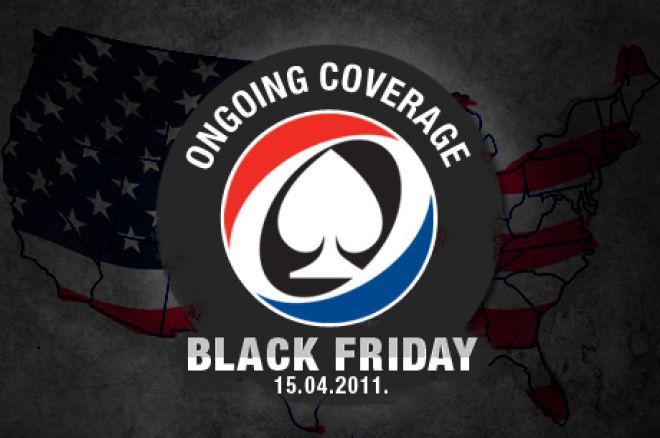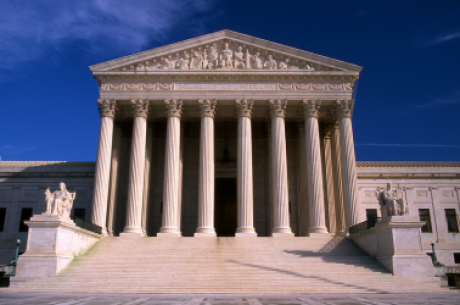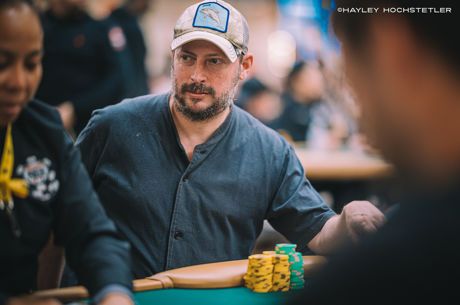Black Friday: Who's to Blame?

Recent federal indictments of the owners of the three big online poker sites raises the question as to whether the sites really do anything wrong or is this merely a witch hunt by theU.S. Department of Justice? Another difficult question is whether the sites betray the customers who trusted them by way of their business practices?
The answers aren't black and white. I think most American citizens who played on PokerStars or Full Tilt Poker would say they are good companies that treated them well. Absolute Poker/Ultimate Bet has a shady past, though under previous ownership, so we'll leave them out.
PokerStars and Full Tilt treat people like valued customers. They have strong customer service. They offer innovative incentives. They take suggestions to heart and constantly work to improve their products. These are legitimate companies, recognized as such in the U.K. and many other countries. They are models of what capitalism should be. They provided a valued service, treated customers well, gained loyal customers as a result, and profited. If your cable company treated you the way these poker sites did, you would be ecstatic.
We, as people who enjoy playing poker, all believe that poker is a game of skill and that it should be our right to play. It is not the government's place to tell us what we can and can't do with our money, particularly when it sanctions activities such as the lottery and stock market, which are much bigger gambles.
There is no federal law that makes online poker illegal. Poker is never specifically mentioned in the Unlawful Internet Gambling Enforcement Act. No legal document indicates that poker is unlawful Internet gambling. The law is open to interpretation, and, because there were no penalties for overblockage but there were for allowing unlawful Internet gambling transactions, banks blocked transactions involving poker sites.
That the Justice Department began this investigation based on the UIGEA and the Illegal Gambling Act of 1955, when there is no legal proof that either law applies to poker, indicates that this was a witch hunt. During the course of the investigation, apparently using information gained from making a deal with Daniel Tzvetkoff, the former head of a payment processing company named Intabill that processed transactions for the online poker companies, the DOJ gained evidence that it believes would prove that the poker sites conspired to defraud U.S. financial institutions by disguising transactions used for Internet gambling as something else to circumvent the UIGEA.
The DOJ, particularly in the Southern District of New York, doesn't release indictments until it thinks it has a slam-dunk case. Without the bank fraud charges, the DOJ would continue its witch-hunt investigation but wouldn't be making indictments now.
So let's look at this charge of bank fraud. I think most people in the poker community knew that the sites were working to circumvent UIGEA and had no moral issue with it because we believe UIGEA is a moronic law meant to infringe on our individual rights. I also believe that, under proper traffic and weather conditions, it can be perfectly safe for me to drive 50 miles per hour in areas with a speed limit of 35. But that doesn't mean I won't get a ticket if caught.
That's a risk I'm willing to take at times. Apparently this was a risk the owners of the poker sites were willing to take. Perhaps it shouldn't have been. Obviously, the penalty for bank fraud is a lot greater than the penalty for getting a speeding ticket. Not only have the indictments hurt the sites, but they also have impacted all of their customers. Perhaps it was irresponsible to risk the money and livelihood of their customers in this manner. Even under the UIGEA, there probably were ways the sites could have handled deposits and cash-outs without committing bank fraud. But the people clamoring to receive withdrawals on the message boards weren't worrying about how they got their money as long as it came quickly.
Bank fraud carries such harsh penalties (up to 30 years in prison and fines up to $1 million) because the banking system is the heart of the nation's economy. But there are many kinds of bank fraud and most that are prosecuted hurt someone. There is no victim here. The poker sites didn't steal anything from anyone. If bank fraud was committed, it was done with the good intentions of running legitimate business through unreasonable government interference.
If the poker sites were criminal enterprises, Barney Frank wouldn't be speaking out against the indictments. If the poker sites really did anything seriously wrong, Frank would be doing all he could to separate his name and the movement to license and regulate Internet gambling from these sites. Instead, he told the congressional newspaper The Hill that the indictments were "an incredible waste of resources." He went on to lament that the DOJ is more focused on prosecuting online poker sites than those responsible for the mortgage crisis: "Go after the people responsible for empty houses, not full houses." Frank is one of the few politicians fearless of controversy to the point that he isn't afraid to bash the indictments. But he's also a very moral person, and if he thought the sites truly did wrong then he would be praising the DOJ.
That doesn't mean there aren't going to be serious consequences for those indicted. I expect that the owners of PokerStars and Full Tilt Poker eventually will reach settlements on the charges. Wednesday morning, the DOJ announced that it had reached an agreement with the sites to return their domain names in order for the sites to return players' money. This is great news for players who were worried about their funds, but it doesn't mean that the sites will receive leniency. I don't expect that PokerStars and Full Tilt Poker will ever return to the U.S. under the ownership of those who were indicted. I do believe that online poker will be legalized in the U.S. during the next five years. PokerStars and Full Tilt may still be able to obtain an eventual license to operate legally in the U.S., but it will probably take the current owners selling the operations to reputable, U.S.-based companies.
PokerNews is following the developments closely and will be continuously updating its readers when new information arises. Be sure to follow us on Twitter for up-to-the-minute news.








